Please activate JavaScript in your browser to use all interface options.
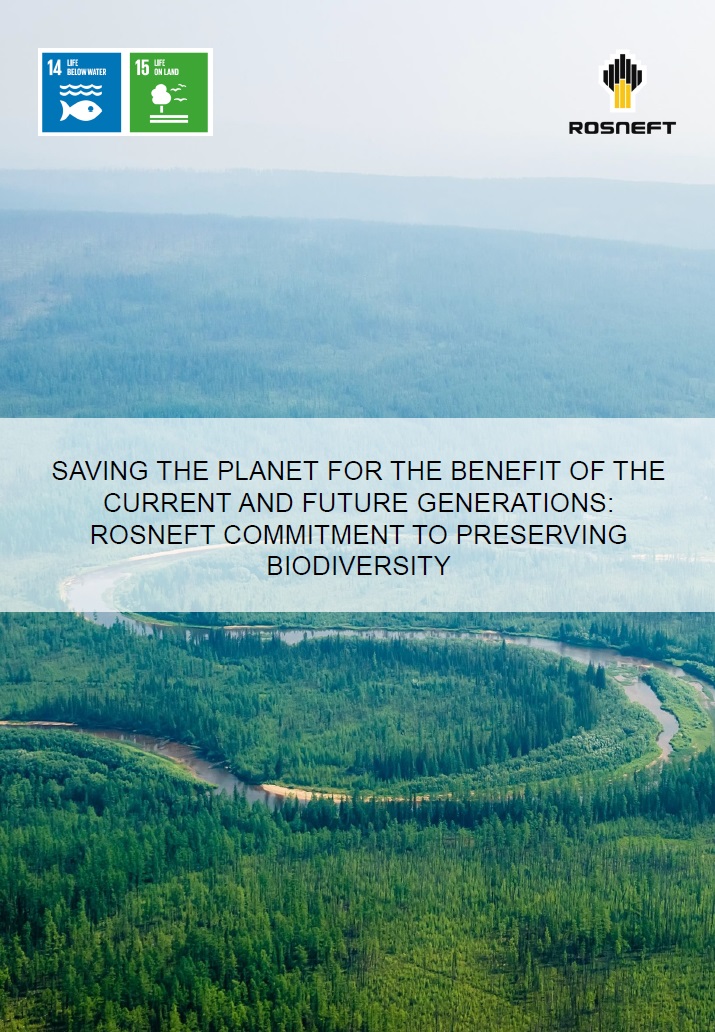
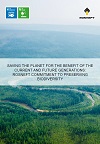 |
Saving the planet for the benefit of the current and future generations: Rosneft commitment to preserving biodiversity |
RESPONSIBLE BUSINESS CONDUCT IS ONE OF THE COMPANY'S MAIN VALUES
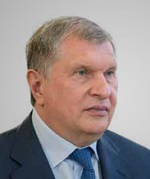 |
“The Company is focused on a rational utilization of natural resources and minimal environmental impact as a responsible producer and participant in the UN Global Compact". Igor Ivanovich Sechin |
PRESERVING BIODIVERISTY IS AN ESSENTIAL PREREQUISITE OF SUSTAINABLE DEVELOPMENT
Rosneft is a global energy company that accounts for about 6% of the world’s crude oil production. The Company is a reliable supplier of energy resources to global markets. In 2020, crude oil and petroleum product supplies to far and near abroad exceeded 179 million tons.
The Company employs more than 355 thousand people who are committed to supplying affordable and clean energy to consumers in Russia and around the world.
In 2018, the Board of Directors confirmed Rosneft’s strategic commitment to contribute to the achievement of the UN Sustainable Development Goals. Biodiversity is of critical importance for people’s development and wellbeing and is essential for sustainable development. The ecosystems regulate the climate on Earth via greenhouse gas capture and storage. Sustainable ecosystems may in a natural way significantly mitigate the global temperature increase, contributing to the resolution of the climate change challenge indicated in the Paris Agreement.
The Company intends to prevent and minimize the impact of its activities on biodiversity during the lifecycle of its project implementation and product use. The Carbon Management Plan to 2035 provides for the use of natural sinks aimed at greenhouse gas emissions reduction (reforestation and sustainable forest management) that also promotes biodiversity protection.
Rosneft allocates the necessary resources for preserving biodiversity in the regions of Company operations and gives priority to ensuring the sustainability of ecosystems and their impact on the quality of life of local communities.
* Total headcount as of the end of 2020 amounted to 355.9 thousand people.
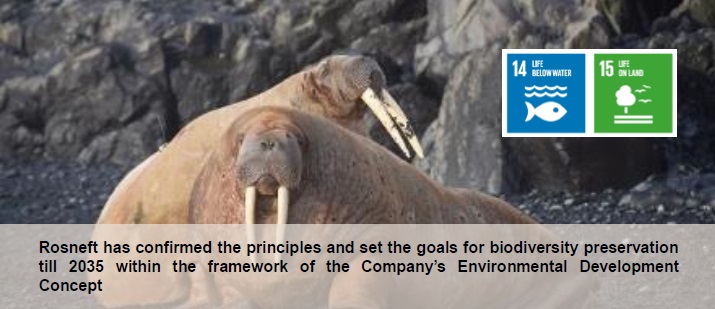
COMPANY GOALS AND APPROACH TO PRESERVING BIODIVERSITY
Rosneft: voluntary exclusion of activity areas
- When planning new projects in all regions of its operations, the Company will make every effort to avoid activities or any impact on the specially protected natural areas - 1a and 1b protected area categories under the International Union for Conservation of Nature (IUCN) classification as well as the UNESCO heritage sites.
- In accordance with legislative requirements the Company commits to not conducting crude oil exploration activities in ice areas of the Arctic seas without a stringent environmental review held in advance, as well as monitoring and an independent verification of operations. The Company is not engaged in offshore production activities in the Arctic seas.
In the Arctic, Rosneft carries out a comprehensive long-term research programme that includes geological, hydrometeorological and environmental activities in cooperation with leading Russian scientific and engineering institutions.
In nine years, Rosneft conducted about 30 Arctic expeditions along the entire coast of the Arctic Ocean. Since 2014 the Company has been consistently reestablishing the system of Arctic meteorological observations. In the 2020 survey season, Rosneft conducted a large-scale expedition on studying such Red Book species as the population of Atlantic subspecies of walrus, white bear and white seagull. The expedition was held in cooperation with The A.N. Severtsov Institute of Ecology and Evolution of the Russian Academy of Sciences, The Marine Research Centre of the Moscow State University, and The Arctic and Antarctic Research Institute. In addition, together with The Siberian Federal University the Company continued studies of the wild reindeer population that forms the living base of the indigenous people of the North. The studies are aimed at assessing the state and sustainability of the Arctic ecosystems on the basis of the key animal species research.
Rosneft and the Innopraktika non-governmental development institution published the "Russian Arctic. Space. Time. Resources“ Atlas so that the findings are properly arranged and made known to the public. The Atlas contains unique scientific data on physical geography, ecology, research history, and economic potential of Russia's Arctic zone.
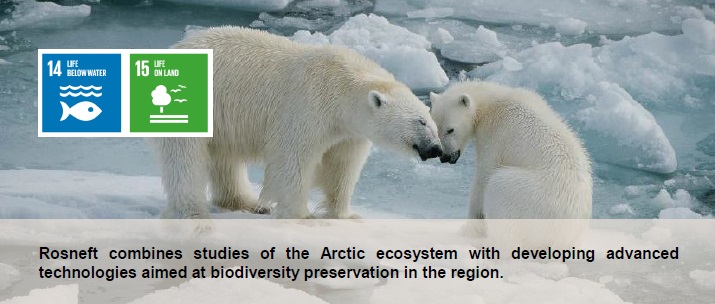
COMPANY GOALS AND APPROACH TO PRESERVING BIODIVERSITY
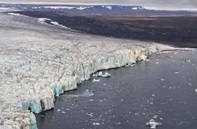 |
In 2020, Rosneft continued development of a unique microbial drug for utilizing hydrocarbons at subpolar latitudes in cooperation with the Innopraktika non-governmental development institution, and the Faculty of Biology at the Moscow State University. |
The joint research resulted in 39 patents granted for microbial drugs and psychrophilic bacterial strains that have proven efficiency for decomposing petroleum products in marine environment and cold climate that differentiates the product from its analogues that are not designed for subzero temperatures.
Preserving biodiversity during greenfield project execution
- Greenfield projects must comply with the principle of a net positive impact on biodiversity in line with the best practice of the International Union for Conservation of Nature (IUCN).
- All greenfield projects shall be designed based on the principles of environmental safety and a zero unfavourable impact on the ecosystems which shall be secured through the application of the best available environmental technologies, constant monitoring and benchmarking against the science-based references.
- The biodiversity action plan is part of an independent Environmental and social impact assessment (ESIA) of every greenfield project that the Company executes in the areas that are classified under the IUCN Criteria (categories II-IV) and the Ramsar Convention. The action plan shall be ready prior to the project commissioning.
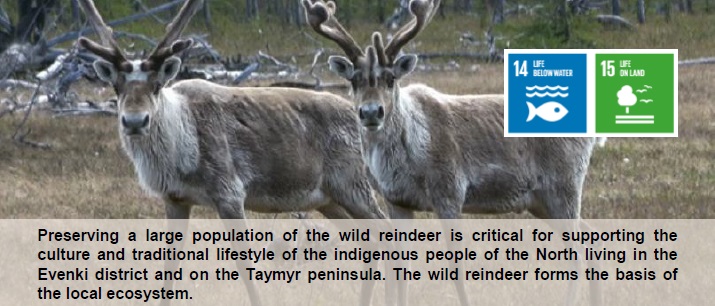
COMPANY GOALS AND APPROACH TO PRESERVING BIODIVERSITY
Preserving biodiversity at operating projects
- The Company commits to have and execute an action plan on biodiversity preservation at every large asset that has an environmental impact.
- The Company commits to report on the action plan implementation to its stakeholders in the Sustainability Report and the public statement "Rosneft: contributing to the implementation of the UN Sustainable Development Goals".
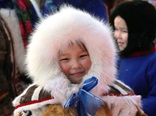 |
The Company continues to support the “IT camp” project in the Khanty-Mansi Autonomous Region - Yugra. In 2020, 17 camps received the Internet connection that provided Internet access for almost 800 people from 54 territories of traditional ecosystems and 4 ethnic villages. |
Acting within a corporate-wide biodiversity preservation programme, Rosneft supports saving the largest wild reindeer population. The use of collars equipped with the ARGOS satellite monitoring system and built-in GPS receivers allows obtaining data on the animals’ complete annual migration cycle, and discovering seasonal features of their movement depending on weather conditions and other habitat factors.
During ground and air monitoring photographic coverage and video recording are made along with a subsequent animal identification, registering places of anthropogenic impacts on the herd, collecting samples of biological materials, and conducting satellite- and drone-based observations with a view to ensuring a detailed animal study.
For reference: 17 Sustainable Development Goals have been set by the UN resolution "Transforming our World: the 2030 Agenda for Sustainable Development“,
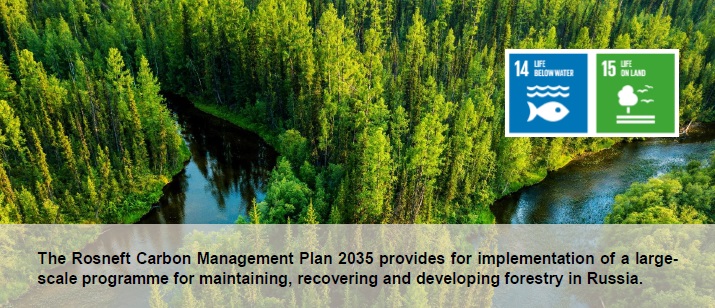
COMPANY GOALS AND APPROACH TO PRESERVING BIODIVERSITY
Preserving biodiversity at operating projects
- The Company commits to considering a possibility of implementing projects focused on preserving biodiversity during rehabilitation of the decommissioned assets (including offsets) in compliance with the legislation.
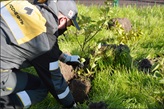 |
The Company has been scaling up its afforestation efforts. In 2020, Rosneft planted 1.5 mln young trees that is a 50% increase as compared to the previous year. In the last three years, the Company has planted 3.5 million trees. |
Russia is number one in the world in terms of forest area. According to Global Forest Resources Assessment 2020 released by the United Nations Food and Agriculture Organization (FAO), the forest area in Russia is equal to 815 mln hectares or 20% of the entire forest area in the world (4.06 bn ha or 0.52 ha of forest for every resident of Earth).
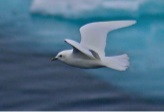 |
Rosneft is studying the population of an ivory gull that is a rare and vulnerable seabird species. For the first time, the seasonal monitoring data on ivory gull colonies in Russia has been obtained. |
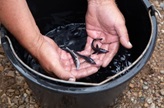 |
As part of the fish stock recovery action plan, in the last two years Rosneft has released more than 100 mln fingerlings of valuable and ordinary fish in Russia’s rivers. |
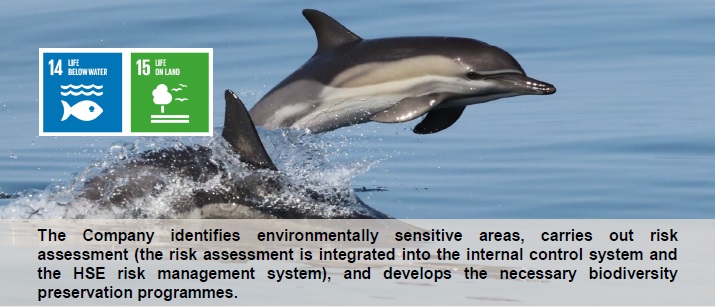
COMPANY GOALS AND APPROACH TO PRESERVING BIODIVERSITY
Developing an informed approach to preserving and reproducing biodiversity
- The Company consistently and continually develops an informed approach to preserving and reproducing biodiversity. There are educational thematic meetings and seminars for employees and contractors held at every corporate asset.
- The work teams attend regular training sessions and take tests on compliance with ISO 14001:2015 for an Environmental Management System.
- The Company engages with the scientific community and general public, supports environmental studies and discloses their results (Rosneft supports the principles of the UN Global Compact, and participates in two Action Platforms of the United Nations Global Compact - on Sustainable Ocean Business and Sustainable Finance).
- Every year the Company assesses the results of its biodiversity preservation activities and discloses this information in the Sustainability Report and in the public statement "Rosneft: contributing to the implementation of the UN Sustainable Development Goals".
Supply chain and procurement
- The Company expects its suppliers and contractor to comply with the corporate commitments, uniform principles and corporate requirements in the area of environmental protection and biodiversity preservation.
- The Company conducts regular audits and exercises control over the onsite performance in compliance with the norms and requirements of the Russian legislation.
Сoordination of activities in the area of biodiversity preservation is executed at the executive level by the standing HSE Committee and Carbon Management Committee.
The Strategy and Sustainable Development Board Committee and the Board of Directors of Rosneft regularly review the Company’s performance in the area of environmental protection, including biodiversity preservation.
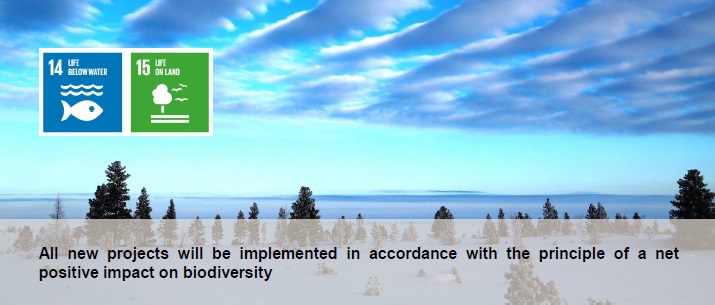
ROSNEFT BIODIVERSITY PROJECTS
Arctic
- Program for preservation of biological diversity of marine ecosystems in the Arctic zone under an agreement with the Ministry of Natural Resources and Environment of Russia
The goal is to study key types of bioindicators reflecting the sustainability of Arctic ecosystems for:- Ivory gull
- Walrus
- White Bear
- Reindeer
- A comprehensive project focused on the restoration of the northernmost territories of Russia – a nature reserve in the Franz Josef Land archipelago.
- Unique "Russian Arctic. Space, time, resources” Atlas.
- Environmental Atlases: "The Barents Sea" and "Species - biological indicators of the Arctic marine ecosystems".
- Ecological forum "ECOARCTIC".
Preservation of water resources and marine ecosystems
- Replenishment of fish stocks in rivers and water bodies in the European part of Russia, Western and Eastern Siberia, the Volga Region.
- Research and monitoring of Black Sea Dolphins.
- Environmental atlases of Russia's seas unparalleled in Russia.
Large-scale programme on reforestation and maintaining forest ecosystems offsetting emissions.
Support for a programme to study and preserve the Amur tiger population.
Support for studying migratory routes of the Siberian sable in the Evenkiysky District of the Krasnoyarsk Territory.

-315xx70.png)
-315xx70.png)